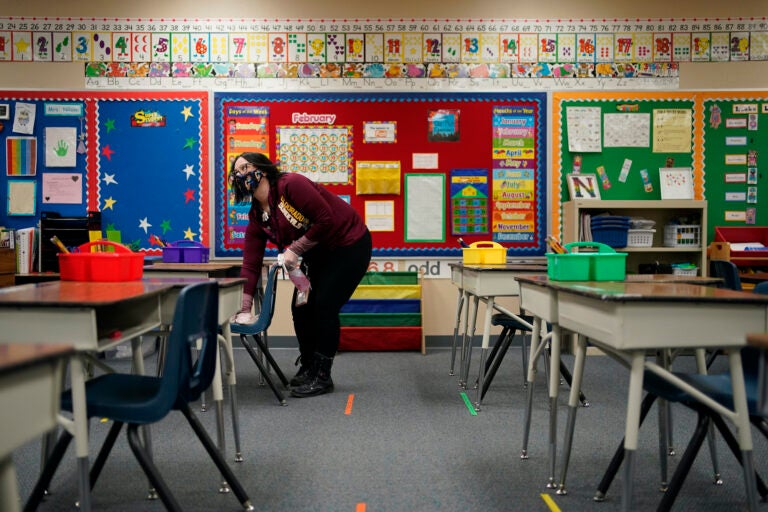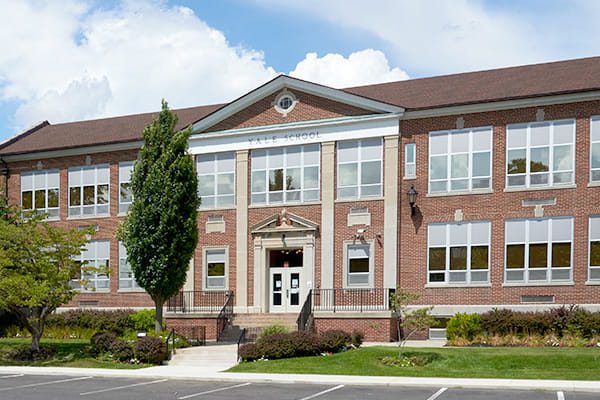Exactly How Schools Play a Critical Function in Shaping Future Leaders and Pioneers
Schools are critical in forming future leaders and trendsetters through the farming of vital thinking, creativity, and collaboration. By incorporating project-based discovering and interdisciplinary research studies, academic establishments challenge trainees to evaluate and manufacture complex information. Teachers offer as mentors, guiding pupils and supporting their possibility, while extracurricular tasks additionally develop leadership abilities and durability. This vibrant atmosphere not only concentrates on individual toughness but additionally emphasizes the relevance of team effort, essential for browsing tomorrow's difficulties. Just how specifically do these components interplay to develop a durable structure for future success?
Promoting Essential Believing
In today's quickly evolving world, promoting critical thinking within schools has actually ended up being critical. As society comes to grips with increasingly complex worldwide challenges, the capability to evaluate, review, and manufacture details is essential. Institutions play a critical role in developing these skills, preparing trainees to navigate and address diverse issues with educated, reasoned choices.
To cultivate critical reasoning, educators utilize various pedagogical strategies that motivate energetic knowing and intellectual interaction. Class conversations, problem-based knowing, and Socratic questioning contribute in advertising logical and reflective mind. By challenging trainees to question assumptions and think about numerous viewpoints, these approaches ensure a much deeper understanding of topic beyond memorizing memorization.
Moreover, incorporating crucial assuming across the curriculum reinforces its importance and applicability in diverse contexts. Subjects such as maths, science, history, and literature each offer special opportunities to develop pupils' critical professors. Assessing historic occasions needs understanding and examining sources context, while scientific inquiry needs extensive theory screening and evidence-based thinking.
Ultimately, instilling critical assuming skills in trainees equips them with the cognitive tools essential for lifelong discovering and versatility. It is through this foundational competence that future leaders will certainly be able to innovate, address troubles, and add meaningfully to society.
Urging Creative Thinking
Accepting creative thinking within instructional frameworks galvanizes trainees to believe beyond traditional borders and explore ingenious remedies. By integrating imaginative undertakings and creativity exercises right into the educational program, institutions grow an environment where originality and imaginative thought are valued. This approach not just enriches the educational experience yet also equips pupils with the capacity to tackle real-world obstacles in novel means.
University can cultivate creative thinking with varied ways such as project-based learning, interdisciplinary research studies, and the incorporation of arts and modern technology. Project-based understanding, for example, encourages students to use their knowledge in useful, commonly collective, jobs that demand creative problem-solving skills. Interdisciplinary studies permit pupils to attract connections between various subjects, thus expanding their perspectives and enhancing their imaginative capabilities.
Furthermore, giving trainees with opportunities to involve with arising modern technologies, such as coding and electronic design, further nurtures their innovative capacity. These tasks prompt pupils to experiment, fail, and iterate, which are important parts of the innovative process (Save Temecula Schools). By keeping a helpful setting where testing is motivated, colleges can make certain that trainees develop the self-confidence to pursue cutting-edge concepts
Fundamentally, supporting creativity in academic setups is crucial for forming future leaders and pioneers capable of addressing intricate worldwide issues with resourcefulness.
Supporting Collaboration

Applying group-based learning modules and participating tasks allows pupils to experience the characteristics of synergy firsthand. This not just prepares them for the collective nature of contemporary offices yet additionally supports management high qualities as they commonly need to tackle duties such as job supervisors or group planners. In addition, cooperation in the class can damage down social obstacles and promote inclusivity, making sure that each trainee feels valued and heard.
Furthermore, integrating technology can better sustain collective efforts. Tools like shared digital work spaces and interactive systems make it possible for pupils to interact successfully, also outside the classroom. As pupils create these joint skills, check my blog they are better outfitted to deal with complex obstacles and introduce, laying the foundation for their future roles as innovators and leaders.
Role of Educators as Mentors

Mentorship involves individualized attention, where teachers determine and support private staminas and address weak points. Save Temecula Schools. Through one-on-one interactions, instructors can customize their guidance and assistance to fulfill each pupil's distinct requirements, cultivating a sense of self-confidence and strength. This tailored technique grows a development attitude, encouraging students to view failings as opportunities for learning and growth
Moreover, educators function as good example, showing the values of perseverance, compassion, and honesty. Their attitudes and actions give a blueprint for trainees to replicate, instilling a sense of moral responsibility and social awareness. By developing a encouraging and comprehensive class setting, educators make it possible for pupils to create social skills that are essential for effective management.
Essentially, the mentorship offered by teachers lays a foundational structure for the growth of future leaders, furnishing them with the understanding, skills, and worths needed to master an ever-evolving globe.
Effect of After-school Activities
When incorporated successfully into the instructional structure, extracurricular activities significantly improve student growth and management capacity. These activities provide trainees with opportunities to discover rate of interests past the conventional curriculum, promoting a versatile skill collection.
Additionally, extracurricular participation motivates imagination and technology. Students took part in dramatization, debate, or music clubs discover to believe critically and approach problems from diverse perspectives. These experiences instill self-confidence, enabling pupils to articulate their concepts and take effort in various settings. link By working together with peers from various backgrounds, students likewise develop empathy and communication abilities, necessary traits for future leaders.
Research study indicates that students entailed in such programs have a tendency to have higher qualities and far better attendance documents. Thus, schools that focus on a balanced approach to education, incorporating durable extracurricular programs, are extra most likely to produce trendsetters and leaders equipped to satisfy the difficulties of the future.

Verdict
In verdict, colleges significantly shape future leaders and pioneers by nurturing important reasoning, creativity, and cooperation amongst trainees. By cultivating a supportive environment that values individual staminas and teamwork, schools equip trainees with the necessary skills to browse future challenges and drive technology.
As trainees establish these joint skills, they are better outfitted to deal with intricate difficulties and innovate, laying the groundwork for their future functions as trendsetters and leaders.
By cultivating vital thinking and problem-solving skills, instructors help pupils navigate intricate difficulties, preparing them for leadership roles in various areas.
By working together with peers from different backgrounds, pupils likewise develop compassion and communication abilities, crucial characteristics for future leaders.
In verdict, institutions dramatically shape future leaders and pioneers by nurturing vital reasoning, creativity, and cooperation among students. By fostering a look these up helpful setting that values individual staminas and teamwork, schools equip trainees with the necessary abilities to browse future challenges and drive advancement.